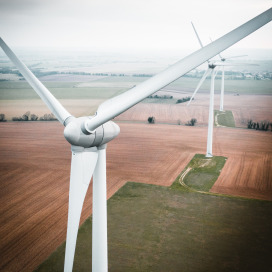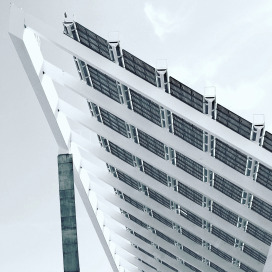Sustainability
There is no sustainability in a world without CO₂ neutrality.

CO₂ neutrality is about keeping the carbon dioxide in circulation
e-fuels release carbon dioxide during the combustion process. But only as much is emitted as was previously locked in during the production process. This makes e-fuels CO₂ neutral.
The carbon dioxide required for the production of e-fuels is primarily obtained from industrial sources. This is done by filtering emissions from power stations, waste incineration plants, steel/aluminum production plants, cement production etc. Natural processes, such as in sewage treatment plants and biogas plants, also serve as CO₂ sources.
At a later stage, the filtering of CO₂ from the ambient air may also be considered. These processes are still too cost-intensive for industrial application today.

The energy efficiency factor
Battery electric and hydrogen-powered vehicles have a higher energy efficiency than e-fuels. However, the advantages of e-fuels lie in their transport and storage capability and in their versatile and safe application possibilities.
Since, unlike fossil fuels, renewable energy sources are available in unlimited supply, the issue of energy efficiency can be disregarded. Production costs per energy unit and the CO₂ savings over the entire production and consumption process are more relevant in a direct comparison.
In addition, only e-fuels offer the opportunity to decarbonize existing applications such as existing fleets or chemical industry plants, which in turn has an impact on the eco-balance, as no new infrastructure needs to be built.